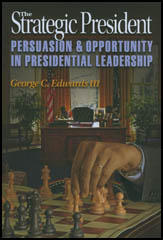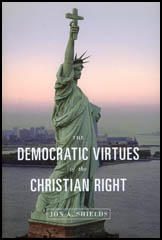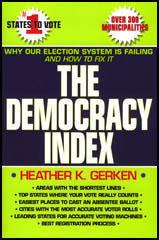Spartacus Review
Volume 31: 22nd March, 2009
Modern Politics

Title: The Strategic President
Author: George Edwards III
Editor:
Publisher: Princeton University Press
Price: £17.95
Bookshop: Amazon
Spartacus Website: Richard Nixon
Category:
How do presidents lead? If presidential power is the power to persuade, why is there a lack of evidence of presidential persuasion? George Edwards, one of the leading scholars of the American presidency, skillfully uses this contradiction as a springboard to examine - and ultimately challenge - the dominant paradigm of presidential leadership. The Strategic President contends that presidents cannot create opportunities for change by persuading others to support their policies. Instead, successful presidents facilitate change by recognizing opportunities and fashioning strategies and tactics to exploit them. Edwards considers three extraordinary presidents - Abraham Lincoln, Franklin D. Roosevelt, and Ronald Reagan - and shows that despite their considerable rhetorical skills, the public was unresponsive to their appeals for support. To achieve change, these leaders capitalized on existing public opinion. Edwards then explores the prospects for other presidents to do the same to advance their policies. Turning to Congress, he focuses first on the productive legislative periods of FDR, Lyndon Johnson, and Reagan, and finds that these presidents recognized especially favorable conditions for passing their agendas and effectively exploited these circumstances while they lasted. Edwards looks at presidents governing in less auspicious circumstances, and reveals that whatever successes these presidents enjoyed also resulted from the interplay of conditions and the presidents' skills at understanding and exploiting them. The Strategic President revises the common assumptions of presidential scholarship and presents significant lessons for presidents' basic strategies of governance.

Title: The Democratic Virtues of the Christian Right
Author: Jon A. Shields
Editor:
Publisher: Princeton University Press
Price: £17.95
Bookshop: Amazon
Spartacus Website: Ronald Reagan
Category:
The Christian Right is frequently accused of threatening democratic values. But in The Democratic Virtues of the Christian Right, Jon Shields argues that religious conservatives have in fact dramatically increased and improved democratic participation and that they are far more civil and reasonable than is commonly believed. Shields interviewed leaders of more than thirty Christian Right organizations, observed movement activists in six American cities, and analyzed a wide variety of survey data and movement media. His conclusions are surprising: the Christian Right has reinvigorated American politics and fulfilled New Left ideals by mobilizing a previously alienated group and by refocusing politics on the contentious ideological and moral questions that motivate citizens. Shields also finds that, largely for pragmatic reasons, the vast majority of Christian Right leaders encourage their followers to embrace deliberative norms in the public square, including civility and secular reasoning. At the same time, Shields highlights a tension between participatory and deliberative ideals since Christian Right leaders also nurture moral passions, prejudices, and dogmas to propel their movement. Nonetheless, the Christian Right's other democratic virtues help contain civic extremism, sharpen the thinking of activists, and raise the level and tenor of political debate for all Americans.

Title: The Democracy Index
Author: Heather K. Gerken
Editor:
Publisher: Princeton University Press
Price: £14.95
Bookshop: Amazon
Spartacus Website: Jimmy Carter
Category:
Despite howls for reform, the only thing separating us from another election disaster of the kind that hit Florida in 2000, and that almost struck again in Ohio in 2004, may simply be another close vote. In this lucid and lively book, Heather Gerken diagnoses what is wrong with our elections and proposes a radically new and simple solution: a Democracy Index that would rate the performance of state and local election systems. A rough equivalent to the U.S. News and World Report ranking of colleges and universities, the Index would focus on problems that matter to all voters: How long does it take to vote? How many ballots get discarded? How often do voting machines break down? And it should work for a simple reason: no one wants to be at the bottom of the list. For a process that is supposed to be all about counting, U.S. elections yield few reliable numbers about anything--least of all how well the voting system is managed. The Democracy Index would change this with a blueprint for quantifying election performance and reform results, replacing anecdotes and rhetoric with hard data and verifiable outcomes. A fresh vision of reform, this book shows how to drive improvements by creating incentives for politicians, parties, and election officials to join the cause of change and to come up with creative solutions--all without Congress issuing a single regulation. In clear and energetic terms, The Democracy Index explains how to realize the full potential of the Index while avoiding potential pitfalls. Election reform will never be the same again.
